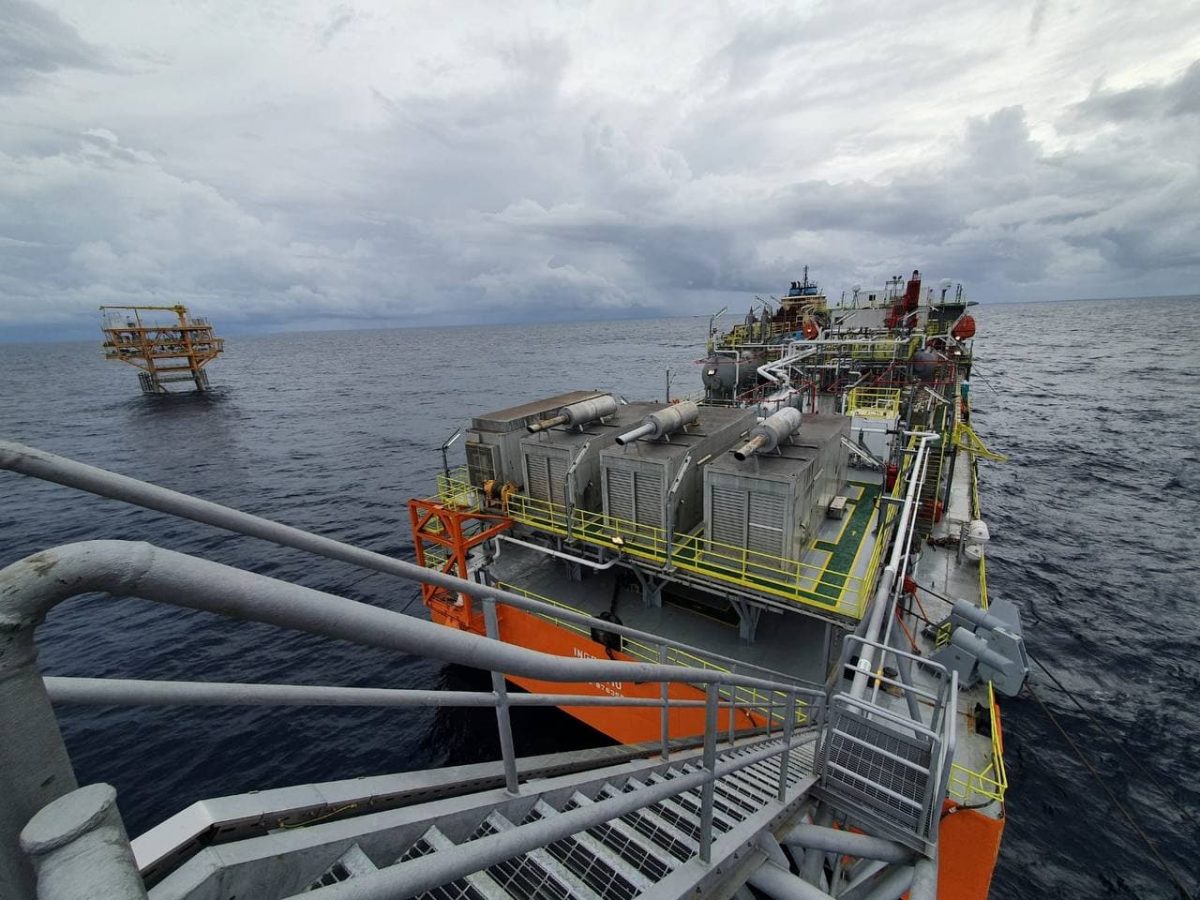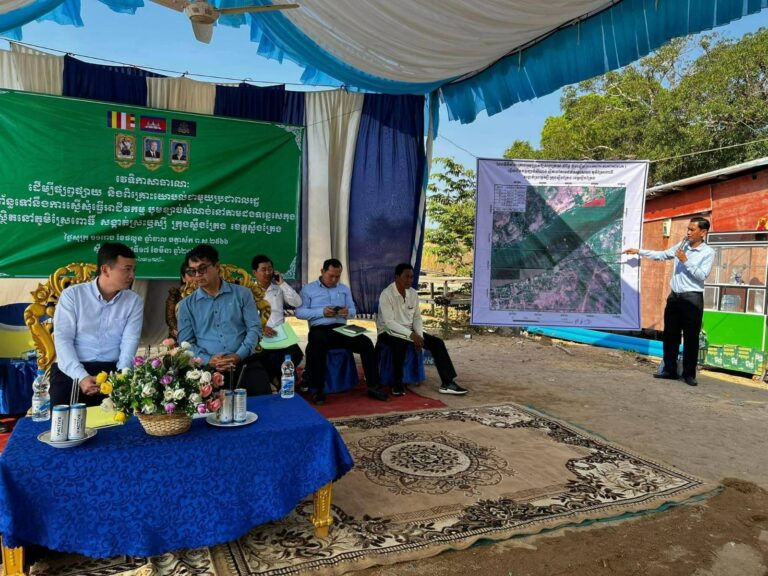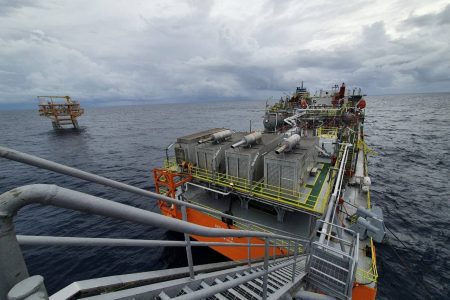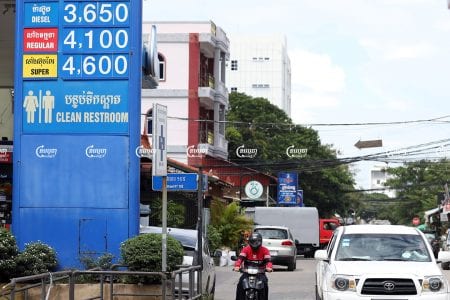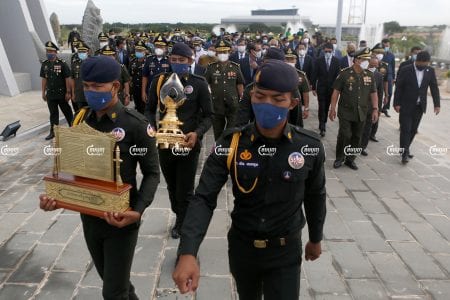The Cambodian Ministry of Mines and Energy has confirmed that oil production at the offshore Apsara oil field has completely stopped as the overseeing KrisEnergy proceeds for liquidation.
Cheap Sour, the ministry’s director-general of petroleum, told CamboJA that while KrisEnergy has stopped pumping oil from the Gulf of Thailand, the Singapore-based company is still in the process of wrapping up its legal affairs.
“The process for the company’s liquidation is not yet finished. The court just decided on appointing the liquidators and the process will take a long time,” he said. “However, the oil extraction is now completely stopped. We are talking about this issue and wait until the completion of the work with KrisEnergy.”
The Grand Court of the Cayman Islands on July 12 appointed Michael Pearson of FFP Limited and Luke Furler of AJCapital Advisory as Joint Official Liquidators to oversee the process. KrisEnergy investor relations and corporate communications vice president Tanya Pang did not respond to an email from CamboJA, while the company’s website was down.
The Singaporean oil exploration firm announced on June 4 that it was unable to pay its debts and would proceed for liquidation. It was only about five months earlier, on December 28, that Cambodia had extracted its first crude oil from the Gulf of Thailand.
KrisEnergy had previously said oil production was expected to reach a peak rate of approximately 7,500 barrels of oil per day. But the output has been less than half its forecast, with the gross production rate at the Apsara field remaining at just more than 2,400 barrels per day.
KrisEnergy signed an agreement with the government in 2017 to develop the 3,083-sq-km “Block A” after buying Chevron’s operating interest in the block for $65 million in 2014 following years of false starts for Cambodia’s nascent oil sector. KrisEnergy holds a 95 percent stake in the project, with the government holding the remaining five percent.
The government had enshrined the Kingdom’s first drop of crude oil at Phnom Penh’s Win-Win Monument on June 9, within a week of KrisEnergy submitting a winding-up petition.
David Van, a senior associate for public-private partnership at sustainable development firm Platform Impact, said the terrain underneath Block A area is more complicated in comparison to a potentially oil-rich seafloor area disputed with neighboring Thailand. He believed prospects were dim for a speedy resumption of extraction on the site.
“It would be quite challenging for the time being and the foreseeable near future for KrisEnergy to find a ‘taker’ for their concession, given the high cost of extracting for Cambodia,” Van said.
In 2020, the Cambodian government was reported to have rekindled negotiations with Thailand on oil and gas development over the long-contested 26,000 square kilometer Overlapping Claims Area (OCA) in the Gulf of Thailand. This has since been delayed by the COVID-19 pandemic, adding to the long history of stalled talks between the gulf countries.
Cambodia and Thailand signed a memorandum of understanding to jointly explore the area in 2001 but was later shelved by the Thai government in 2009. The OCA is estimated to hold up to 500 million barrels of oil and gas deposits under the seafloor.
Pech Pisey, executive director of Transparency International Cambodia, said it is not too late for Cambodia to develop its oil resources. However, he said Cambodia needs to organize its resources both financially and technically to tap the country’s new industry.
“Cambodia should look for good partners and should not give full rights to the private company,” he said. “The government should have a bigger share in the next oil investment.”
Pisey said that the government could partner with China for additional resources, but added that developed countries do not depend on foreign companies for the extraction of mineral resources.
“It is not too late and, if possible, the government can leave it, waiting for any suitable time that the state can afford to start pumping itself,” Pisey suggested.
Anthony Galliano, group CEO of financial services company Cambodian Investment Management Holding, said the disappointing finish of KrisEnergy’s work likely means the short-term prospects for the fledgling petroleum industry are bleak. However, given the clear trade benefits for the country in developing oil extraction, it may only be a matter of time before someone else tries again.
“Cambodia essentially imports all its oil, and the immediate national benefit of domestic production would gravitate the nation towards oil independence,” Galliano said, adding that local production is also advantageous to the national balance of trade, which is currently in deficit largely due to oil imports.
“Consistent and profitable oil extraction remains elusive, and a resurrection of oil production in the gulf, with well-capitalized and committed partners, would be a good start.”


